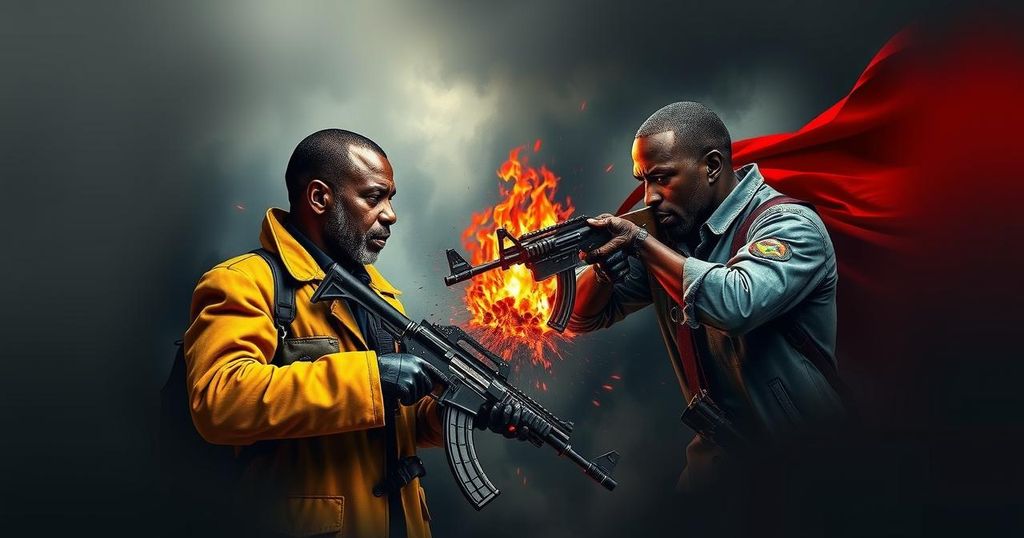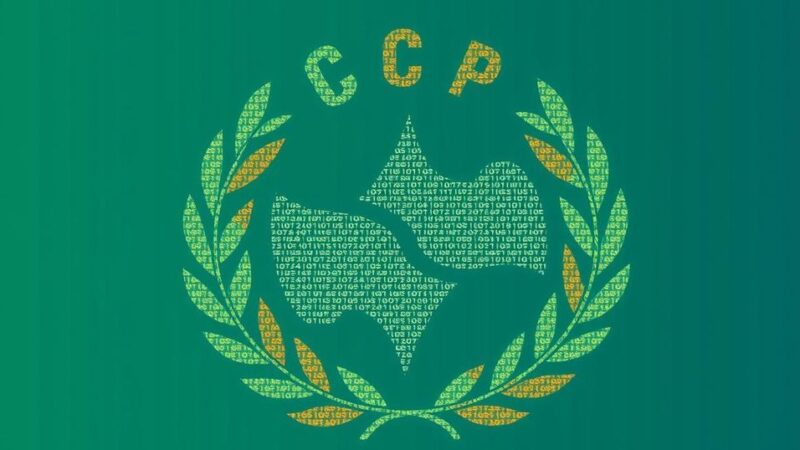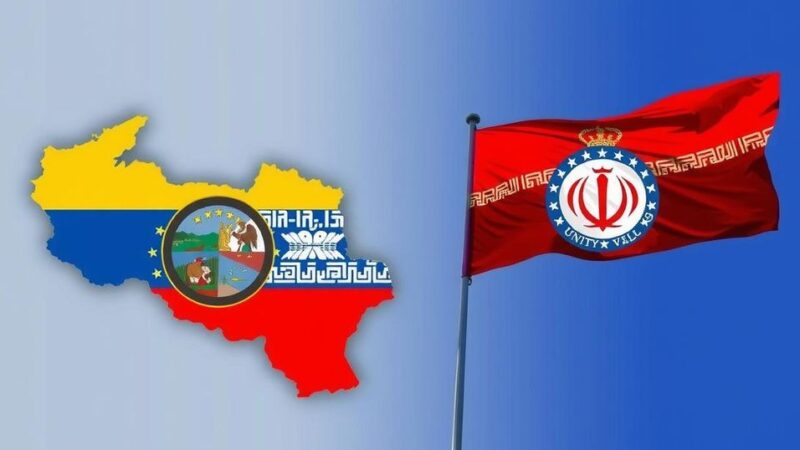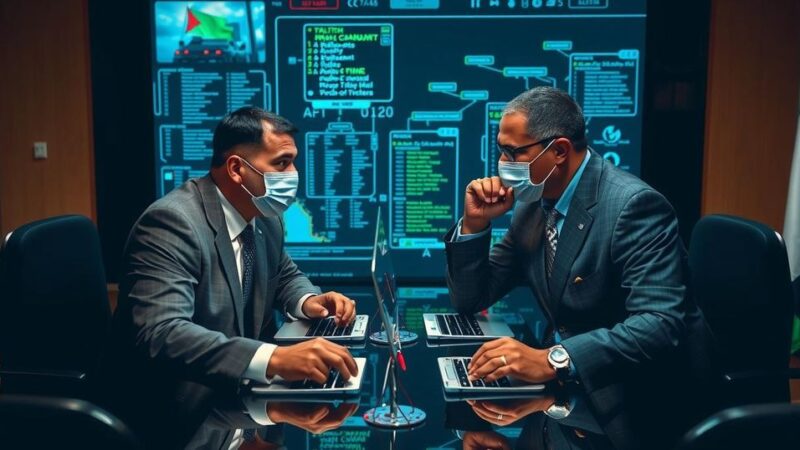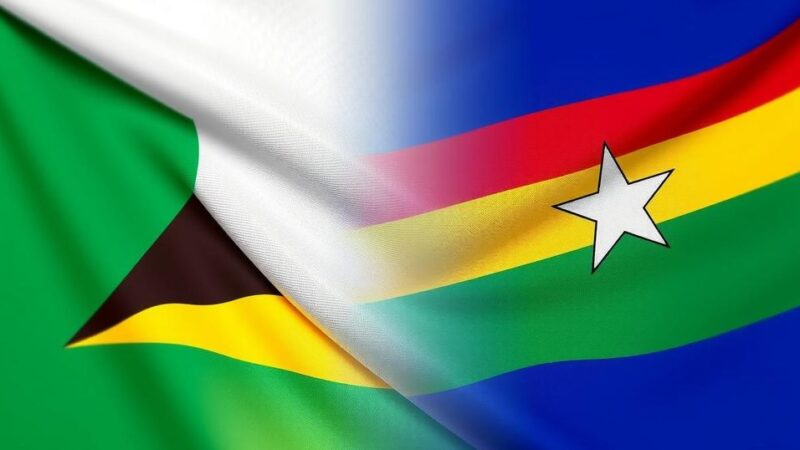Renewed fighting in the eastern Democratic Republic of Congo has raised alarm for the Angolan government, which condemns these hostilities as a violation of a recent ceasefire agreement. The resurgence of violence disrupts ongoing efforts for peace between the DRC and Rwanda, prompting the need for adherence to ceasefire commitments. Humanitarian concerns escalate as civilian injuries and displacements accumulate amidst the conflict.
Renewed hostilities have erupted in the eastern Democratic Republic of Congo (DRC), prompting concerns from the Angolan government. This resurgence of violence undermines recent efforts in Luanda to negotiate a long-term ceasefire following a month-long lull in fighting. In a press statement issued on Tuesday, the Angolan government criticized the renewed clashes as a clear violation of the ceasefire agreement established after the ministerial meeting on July 30 and which took effect on August 4 at midnight. Angola has been serving as a mediator in a complex conflict involving the DRC and Rwanda, both countries accusing one another of supporting rebel factions that threaten stability in the region. Despite a commitment made during a meeting in Luanda two weeks prior, where both nations agreed to pursue a peaceful resolution, violence has once again disrupted efforts for peace. Kinshasa, the capital of the DRC, has affirmed its intention to prevent FDLR rebels, who are seen as adversaries by Rwanda, from receiving support from the Congolese army, albeit conditioned on Rwanda halting its support for the M23 rebels. In response to the latest outbreak of violence, Angola has expressed its strong condemnation, characterizing these actions as detrimental to the progress in resolving the conflict. Acknowledging recent violent encounters reported around Kalembe, Angola has called on all parties involved to adhere to the ceasefire measures reaffirmed during the ministerial meeting on September 14. Reports from local sources indicated that the Wazalendo self-defense group clashed with M23 militants, with the Congolese army regaining control of Kalembe amid these hostilities. Former member of parliament, Juvenal Munubo, claimed that logistical support from the Congolese army enabled the NDC Rénové armed group to reclaim the town of Kalembe and urged the Congolese military and patriotic resistance forces to solidify this victory. Meanwhile, MP Willy Mishiki warned that the rebels are seeking to expand their control over several provinces in eastern Congo, including South Kivu, Tshopo, and Maniema. Despite a ceasefire in place since August, which had shown some degree of success allowing displaced individuals to return to their homes, official responses from Kinshasa regarding this latest deterioration in the truce remain unvoiced. The DRC government has dismissed any form of dialogue with the M23 group but has engaged in ongoing negotiations with Rwanda regarding the conflict. Recent meetings have stressed the significance of avoiding actions that could escalate tensions, further complicating the already dire humanitarian situation in the eastern DRC. Angola has reaffirmed its dedication to finding a lasting resolution to the unrest through the Luanda Process, auspiced by the African Union. Additionally, both Rwanda and the DRC have agreed to establish a verification mechanism to oversee peace efforts, expected to be launched officially in Goma, DRC, by November 5, 2024. The latest escalation has resulted in at least 14 civilian injuries, with thousands fleeing their homes. UN reports predict that approximately 940,000 individuals will be displaced in 2024, contributing to a total displacement figure nearing seven million within the DRC due to ongoing conflicts and humanitarian crises. Consequently, the civilian population, particularly in North Kivu, faces increased risks of overcrowding and severe human rights violations, including sexual violence.
The Democratic Republic of Congo has long been embroiled in conflict, primarily driven by local and regional tensions, including the involvement of various armed groups and foreign nations. The recent uptick in violence comes after a period of relative calm following a ceasefire agreement, highlighting the fragility of peace in the region. Neighboring countries, particularly Angola, have taken proactive diplomatic roles in mediating discussions between the DRC and Rwanda to facilitate a more lasting peace. The humanitarian implications of this conflict are severe, with millions displaced and vulnerable to human rights abuses.
In summary, the resurgence of violence in eastern DRC has elicited strong condemnation from Angola, emphasizing the necessity for all parties to adhere to ceasefire agreements. Amid ongoing negotiations and diplomatic efforts led by Angola, the situation remains precarious, with significant humanitarian ramifications for the affected populations. The establishment of a verification mechanism for peace initiatives may offer a pathway to enhanced stability, but the realization of this goal requires unwavering commitment from all stakeholders involved in the conflict.
Original Source: www.theeastafrican.co.ke
